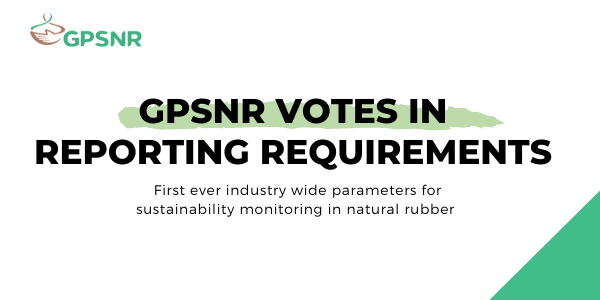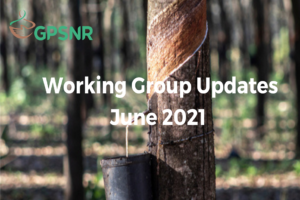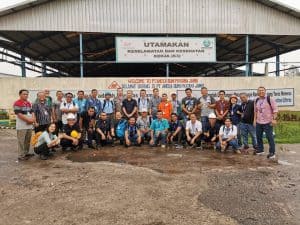PRESS RELEASE
In new industry agreement, Global Natural Rubber companies will report annually on their sustainability progress
Singapore, 15 December 2021: Members of the Global Platform for Sustainable Natural Rubber (GPSNR) convened their annual General Assembly, which saw the approval of a set of detailed sustainability reporting parameters that all members will be required to complete annually from 2022 onwards. This will standardize sustainability reporting in the natural rubber industry, as many GPSNR member companies have already included strong sustainability commitments in their natural rubber production and procurement policies.
As GPSNR member companies account for about 50% of global natural rubber volume, their ability to transparently report on the same sustainability standards will aid a structural change in the industry to ensure harmonised sustainability reporting becomes the norm.
“This is a tremendous milestone for the Platform and for the natural rubber industry. In our third annual General Assembly, we have moved further towards developing a model that helps our members ensure that their products and services are delivered in alignment with GPSNR’s principles, and can be monitored for continuous improvement. The reporting requirements have been agreed upon by upstream and downstream industry stakeholders as well as civil society players to ensure accountability. This serves as a testament to our model of driving sustainability, equity and fairness through multi stakeholder collaborations.’’ said GPSNR Director Stefano Savi.
GPSNR’s third virtual General Assembly drew more than 120 attendees, including members of the Platform, partners and invited guests. In addition to voting on resolutions like the reporting requirements, GPSNR members also elected representatives to the 2021-2022 Executive Committee, which comprises representatives from each of the membership categories.
Access the reporting requirements here.
END
About GPSNR:
GPSNR is an international membership driven platform set up to define sustainability for the natural rubber value chain. It brings together various stakeholders to a common ground based on fairness, equity and environmental sustainability. More on sustainablenaturalrubber.org
For more information, please contact:
Bani Bains
Communications Manager
Email: bani.bains@gpsnr.org
Ph: +65 97268165






